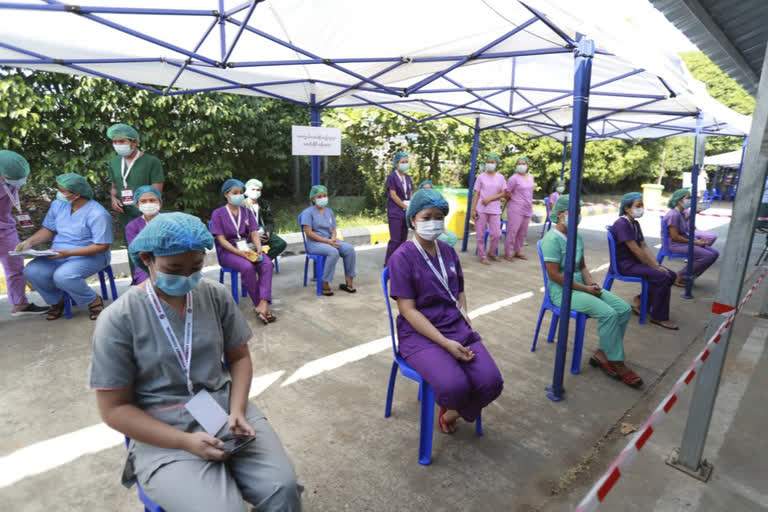Jakarta: Medical workers across Myanmar began a civil disobedience protest against Monday’s coup, wearing red ribbons and declaring they won’t work for the new military government.
The army takeover that ousted the civilian government of Aung San Suu Kyi over allegations of fraud in November’s elections could not have come at a worse time for a country battling a steady rise in COVID-19 cases with a dangerously inadequate health system.
“We want to show the world we are totally against military dictatorship and we want our elected government and leader back,” said Dr Zun Ei Phyu, who lives in Yangon, the biggest city and commercial capital. “We want to show them we will follow only our elected government. Not the military.”
Photos were shared on social media showing workers with red ribbons pinned to their clothes or holding printed photos of red ribbons. Others used a three-finger salute that has become a symbol of pro-democracy protests in neighbouring Thailand, where the military staged a coup six years ago and remains influential.
Some of those on strike have begun to volunteer at charity health clinics, many of which were shut down as a precaution against a surge in COVID-19 cases. The clinics that have remained reopen are extending their working hours so people can still receive care during the protest, Zun Ei Phyu said.
Read:|Suu Kyi charged with keeping illegal radios
“We give free treatment and medicine to anyone who is in need,” she said, adding the clinics often operate with donations from charities and local communities.
Myanmar’s early response to the pandemic mirrored that of many countries: borders were nearly completely closed, lengthy quarantines were imposed on travellers, and daily life slowed with stay-at-home orders.
It seemed to work until early September when cases exploded from less than 1,000 to some 14,300 a month later. Now with more than 140,600 confirmed cases and 3,100 deaths, Myanmar’s fragile health system faces the perfect storm of the pandemic and the coup.
“You could expect the military to take full advantage of COVID-19 as a political opportunity, not as a health care responsibility to the people of Myanmar,” said Ronan Lee, a visiting scholar at Queen Mary University of London’s International State Crime Initiative.
History shows those concerns are not without merit.
